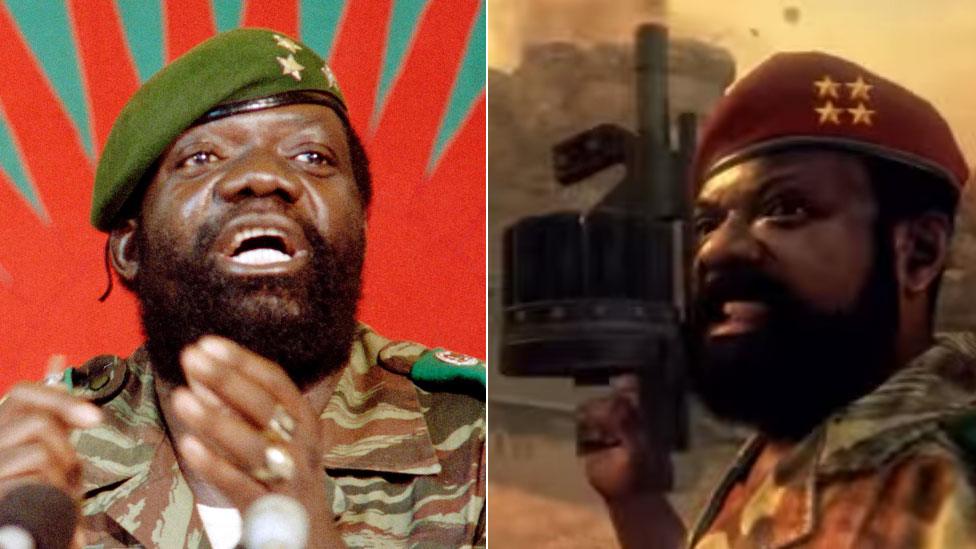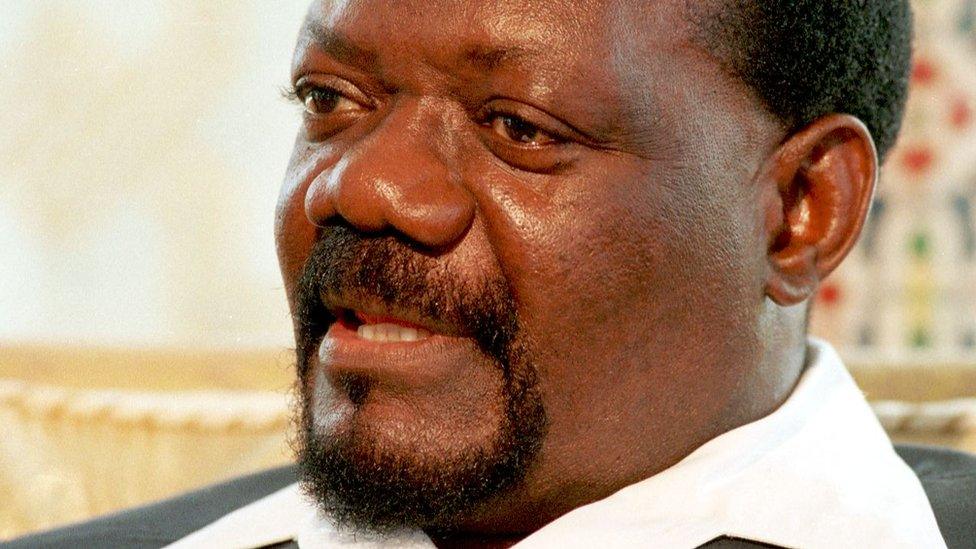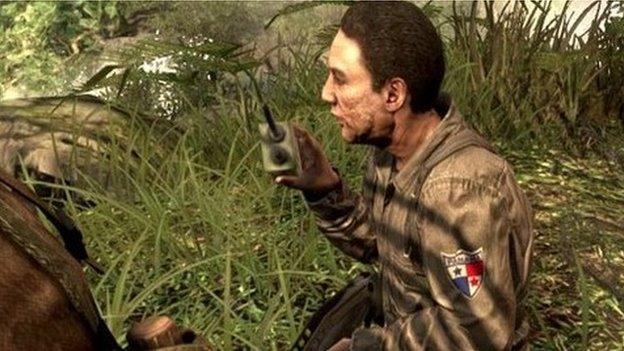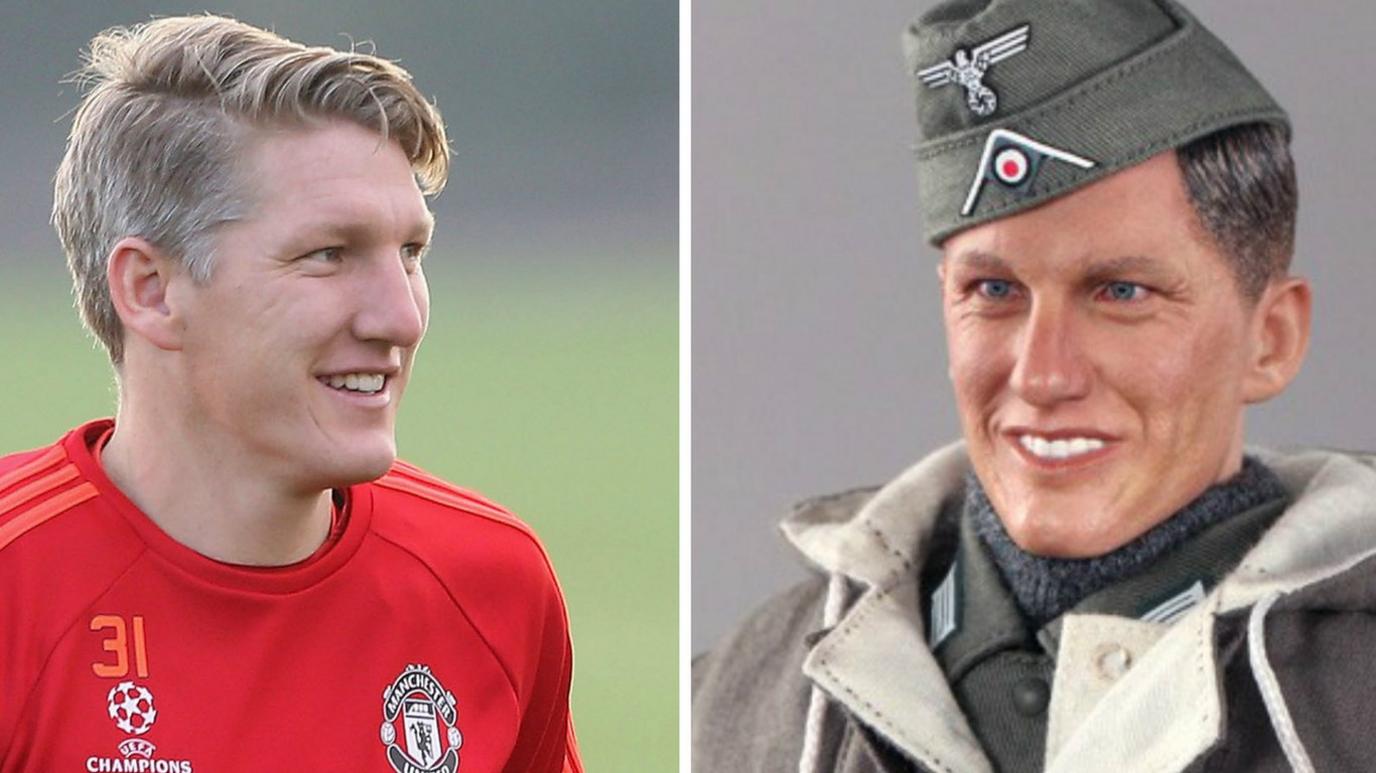Angolan rebel Savimbi's family sues Call of Duty makers
- Published

Jonas Savimbi depicted in 1985 - and in his virtual appearance in Call of Duty
The family of late Angolan rebel leader Jonas Savimbi are suing the makers of Call of Duty over his depiction in the best-selling video game.
Three of Savimbi's children accuse Activision Blizzard of defamation by representing him as a "barbarian".
They are seeking €1m ($1.1m; £0.75m) in damages. Activision said the depiction was "rather favourable".
Savimbi founded the Unita movement, waging a long civil war with the Angolan government.
Angola became a Cold War battleground, with Unita backed by the US and the apartheid government in South Africa, while Angola's ruling party was supported by the Soviet Union and Cuba.
The rebel leader was eventually killed in clashes with state forces in 2002.

Who was Jonas Savimbi? By Justin Pearce:
In the last years of the Angolan war, Jonas Savimbi became a symbol to the outside world for everything that was wrong in Angola.
Although it's difficult to separate the truth from the propaganda and the "Heart of Darkness" stereotypes that stick to many African conflicts, Savimbi's reputation is based on some confirmed incidents.
Suspected witches were burnt alive at Savimbi's headquarters in the early 1980s.
Fred Bridgland, Savimbi's previously admiring biographer, later wrote a horrifying tale of the murder of the Chingunji family who had fallen from grace with Savimbi.
Yet the Angolan civil war lasted for 27 years and both sides committed acts of brutality.
It would be wrong to pin everything on one man, who is still remembered with awe by many who lived under the rule of Unita, and admired by a generation that has grown up since the war.
Justin Pearce is a former BBC Angola correspondent, now at the Department of Politics and International Studies, University of Cambridge

'That isn't Dad'
Call of Duty: Black Ops 2 shows him rallying his troops with phrases like "death to the MPLA", referring to the party that has governed Angola since independence from Portugal in 1975.
But his family said they are outraged at the depiction.
"Seeing him kill people, cutting someone's arm off... that isn't Dad," said Cheya Savimbi.
The three children live in the Paris region and have taken the French branch of Activision to court in Nanterre, near the French capital.
A lawyer for Activision Blizzard, Etienne Kowalski, said the firm disagreed with Savimbi's family, saying it showed the former rebel as a "good guy who comes to help the heroes".
The latest Call of Duty was the world's top selling game last year, and the game has often featured versions of real-life figures.
In 2014, a bid by former Panama dictator Manuel Noriega to claim damages over his depiction in the game was dismissed by a US court.

Savimbi timeline:

Founded Unita movement in 1966 in eastern Angola
Abandoned his medical studies in Portugal to join anti-colonial struggle
Despite Angola's independence in 1975, Unita continues to fight the government
Savimbi considered himself leader of Angola's struggle against communism
He received strong support from the US and met President Reagan at the White House in 1986
More than 500,000 people were killed in the four-decade conflict
His death in 2002 was celebrated in the capital, Luanda

- Published28 October 2014

- Published22 October 2015
